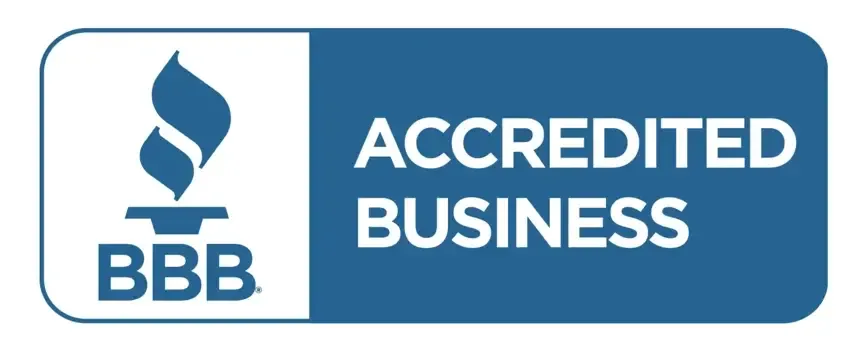Call or Text (951) 477-5682 to get a cash offer on your house!
Understanding Foreclosure and How to Avoid It
Foreclosure is a daunting process that can have severe consequences for homeowners. It is a legal procedure initiated by lenders to recover the balance of a loan from borrowers who have defaulted on their mortgage payments. The result can be the loss of one's home, along with a significant impact on credit scores and future financial opportunities. Understanding foreclosure, its causes, and the various ways to prevent it can empower homeowners to take proactive measures.
What is Foreclosure
Foreclosure is a legal process through which a lender attempts to recover the balance of a loan from a borrower who has stopped making payments. This process can lead to the homeowner losing their property. The legal implications for homeowners are significant, often resulting in the loss of their home and a marked impact on their credit score. Common causes of foreclosure include financial hardship, unemployment, and unexpected expenses that make it difficult for homeowners to keep up with mortgage payments.
The foreclosure process typically unfolds in several stages. Initially, there's a pre-foreclosure period where the homeowner is notified of their default status. If the issue isn't resolved, the property may be put up for auction. Finally, if no one purchases the home at auction, it moves into post-foreclosure, where the lender takes possession. It's important to note that foreclosure laws vary by region. In California, for instance, the process can take several months to complete, providing homeowners some time to seek alternatives.
The consequences of foreclosure extend beyond the immediate loss of one's home. Homeowners typically see a significant drop in their credit scores, which can affect future borrowing capabilities. The emotional and psychological toll of losing a home can be profound, impacting individuals and families deeply. Long-term financial repercussions also include difficulties in securing new housing and potential tax liabilities on forgiven debt. According to a study by the Federal Reserve, foreclosure rates have been a persistent issue in the U.S., affecting thousands of homeowners annually.
Recognizing early signs of financial trouble is crucial in preventing foreclosure. Missed mortgage payments, increased debt, and an inability to meet monthly expenses are common warning signs. Homeowners can benefit from practical advice on budgeting and financial management to prevent these issues from escalating. Open communication with lenders and seeking professional financial advice early can also be helpful. Various resources and programs offer financial counseling and support for homeowners in distress, providing guidance and strategies to manage their finances effectively.
There are several alternatives to foreclosure that homeowners can consider. Loan modification, refinancing, and short sales are some options that may help avoid the foreclosure process. Loan modification involves changing the terms of the mortgage to make payments more manageable. Refinancing can lower interest rates or extend the loan term, reducing monthly payments. Short sales allow homeowners to sell their property for less than the mortgage balance, with the lender's approval. Understanding the terms and conditions of each option is essential before proceeding. Successful foreclosure avoidance strategies often involve a combination of these methods, tailored to the homeowner's specific situation.
Selling a home for cash
can be a quick and efficient way to avoid foreclosure. This option offers several advantages, such as speed, reduced paperwork, and flexibility in closing dates. Unlike traditional real estate transactions, cash sales typically involve fewer steps and costs, making the process simpler and more straightforward. It's important to address common concerns and misconceptions about cash home sales. While they offer a quick resolution, homeowners should ensure they're receiving a fair offer and understand the terms of the sale.
When considering a cash sale, homeowners should take several steps to ensure a smooth transaction. Evaluating offers carefully and verifying the credibility of buyers is crucial. Conducting due diligence helps ensure a fair and legitimate sale. Homeowners can also benefit from tips on how to negotiate and maximize the value of a cash offer. Professional advisors can play a vital role in ensuring the transaction is successful and meets the homeowner's needs.
The Role of Financial Education in Preventing Foreclosure
Financial education plays a crucial role in preventing foreclosure by equipping homeowners with the knowledge and skills needed to manage their finances effectively. Understanding budgeting, saving, and credit management can help individuals avoid the pitfalls that often lead to foreclosure. Many communities and organizations offer financial literacy programs designed to teach these essential skills.
By participating in such programs, homeowners can better prepare for financial challenges and make informed decisions about their mortgages and overall financial health. Ongoing education helps homeowners stay updated on the latest financial tools and strategies that can aid in maintaining their financial stability.
Government Assistance Programs
Government assistance programs can be a lifeline for homeowners facing foreclosure. Programs such as the Home Affordable Modification Program (HAMP) and the Home Affordable Refinance Program (HARP) have been established to help struggling homeowners modify or refinance their loans. These programs aim to make monthly mortgage payments more affordable, thereby reducing the risk of foreclosure. State and local governments often provide resources and support for homeowners in distress, including foreclosure prevention counseling and financial aid. By exploring these options, homeowners can find potential solutions tailored to their specific needs and circumstances.
The Importance of Legal Advice
Seeking legal advice is an important step for homeowners facing foreclosure. Legal professionals can provide guidance on understanding the complex foreclosure process and help homeowners explore their rights and options. Attorneys specializing in foreclosure can offer valuable insights into negotiating with lenders and navigating the legal intricacies involved. They can also assist in identifying potential defenses against foreclosure and ensure that homeowners are treated fairly throughout the process. Engaging with a knowledgeable legal advisor can empower homeowners to make informed decisions and protect their interests.
Understanding the foreclosure process and exploring alternatives can provide homeowners with valuable options to avoid losing their homes. By recognizing early signs of financial trouble and considering options like selling for cash, homeowners can navigate these challenging situations more effectively. Financial education, government assistance programs, and legal advice further enhance the ability to prevent foreclosure. Homeowners are encouraged to proactively seek resources and support, empowering themselves to maintain stability and security in their homes.
For assistance and guidance, reach out to Sellers New Day, where our dedicated team is ready to help you explore your options and find the best solution for your unique situation.










